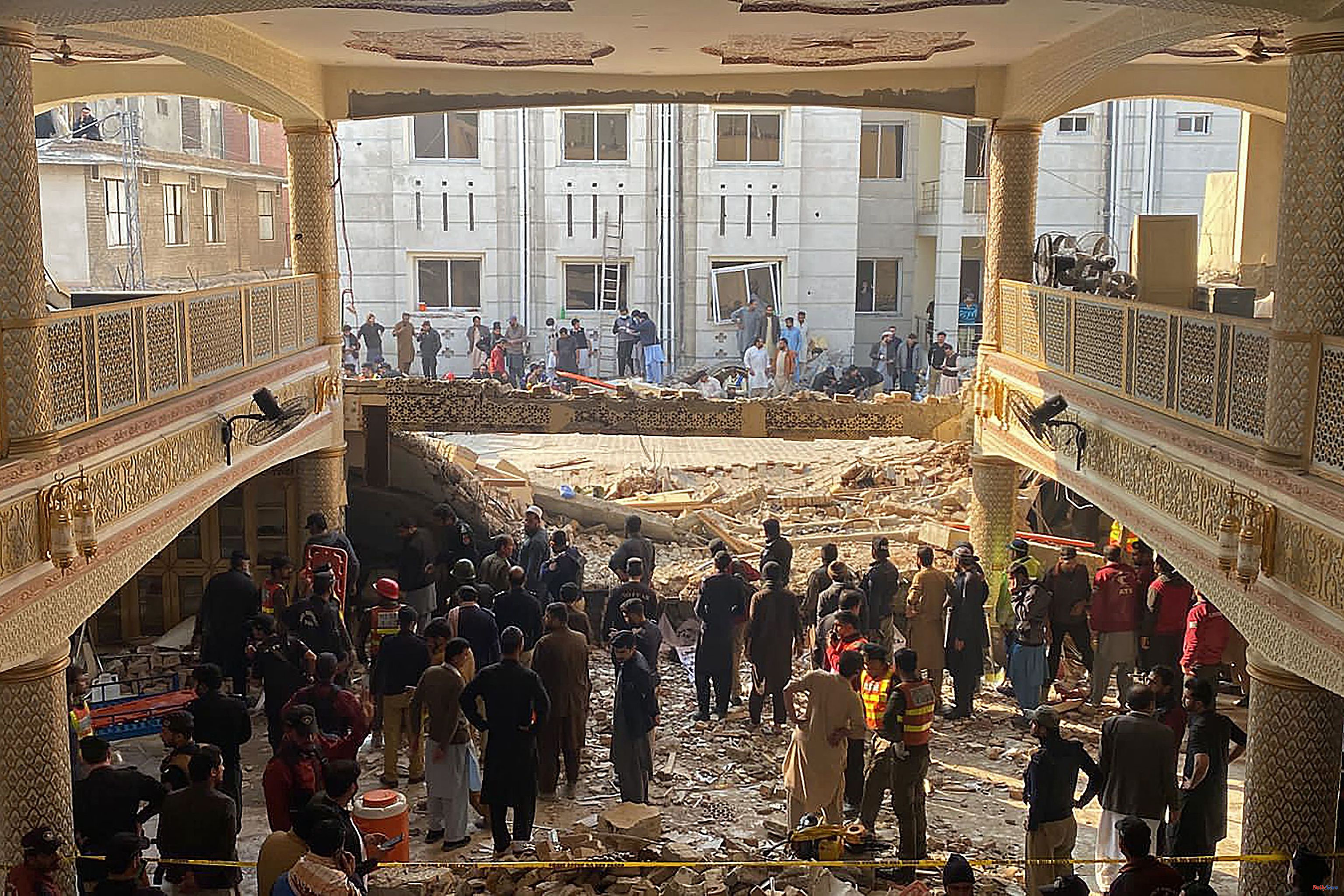A suicide attack this Monday at a mosque inside a police compound in northwest Pakistan left at least 32 officers dead and another 147 people injured, most of them also members of the security forces, in one of the worst attacks against this body. in the history of the Asian country.
"The death toll has reached 32 and they are all policemen. More than 147 people were injured and they are also mostly policemen," said Asim Khan, a spokesman for Lady Reading Hospital in the city of Peshawar, where the attack occurred.
The medical center has been forced to make an appeal to donate blood to treat the dozens of victims of the attack.
The attack occurred around noon at a mosque in Police Lines, a residential and training center for police officers, which explains the high number of victims within this body, detailed the Peshawar commissioner, Riaz Mehsud. "People from outside are not allowed to enter the center," Mehsud remarked.
Pakistani Defense Minister Khawaja Asif said the suicide bomber was in the front row during prayers. "It is time for us to fight the war on terror again," Asif said in an interview with Pakistani Geo TV.
Pakistan's Prime Minister Shehbaz Sharif condemned the "brutal killing of Muslims when they prayed to Allah."
For the moment, no insurgent formation has claimed responsibility for the attack.
The last attack against a religious center in Pakistan took place in the same city of Peshawar in March 2022, when a suicide bomber detonated his explosives in a Shiite minority mosque, leaving 56 dead and almost 200 injured.
Terrorist attacks and insurgent attacks have increased in recent months in Pakistan after several years of relative calm, largely due to the resurgence of the main Pakistani Taliban group, Tehreek-e-Taliban Pakistan (TTP).
The formation, an umbrella group of tribal armed groups created in 2007 and an ally of the Afghan Taliban, has increased its attacks after ending a ceasefire with the government last November. The TTP further claimed to have joined forces with separatist groups in the southern province of Balochistan.
Since its formation, the group has carried out a brutal campaign of terror attacks across the country and killed thousands of people, including a 2012 assassination attempt on future Nobel laureate Malala Yousafzai.
The Islamic State (IS) jihadist group has also carried out attacks in the past in Pakistan, one of the worst in 2018 against a rally in Balochistan, which left 128 dead and 122 injured.
Attacks began to decline in 2014 following a crackdown by Pakistani authorities, but signs of a resurgence are becoming clearer as relations between Pakistan and an Afghanistan under the interim rule of the Taliban, which seized power in Iraq, worsen. August 2021.
According to the criteria of The Trust Project












